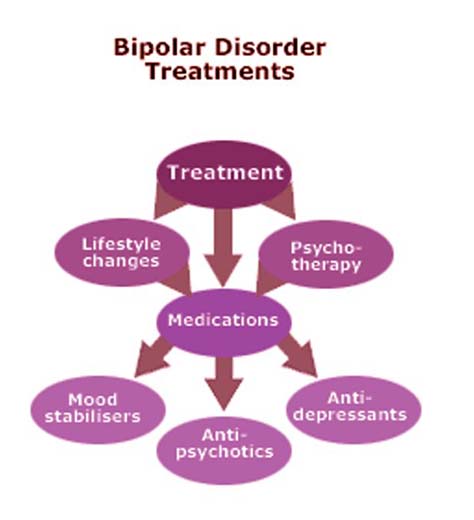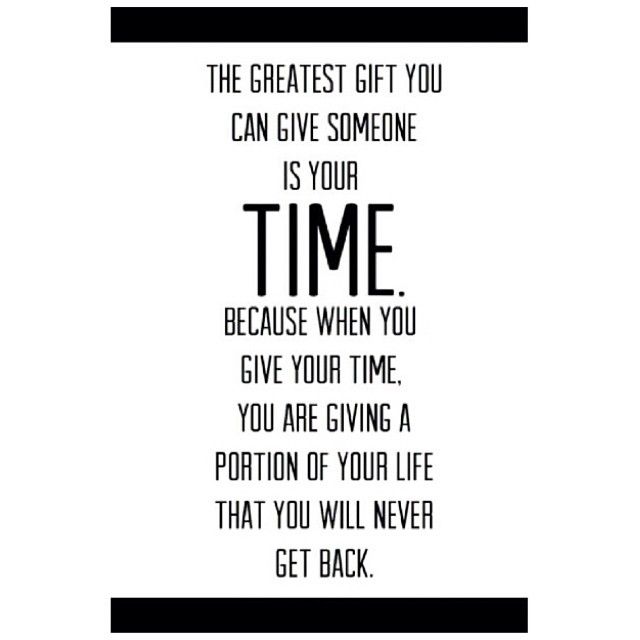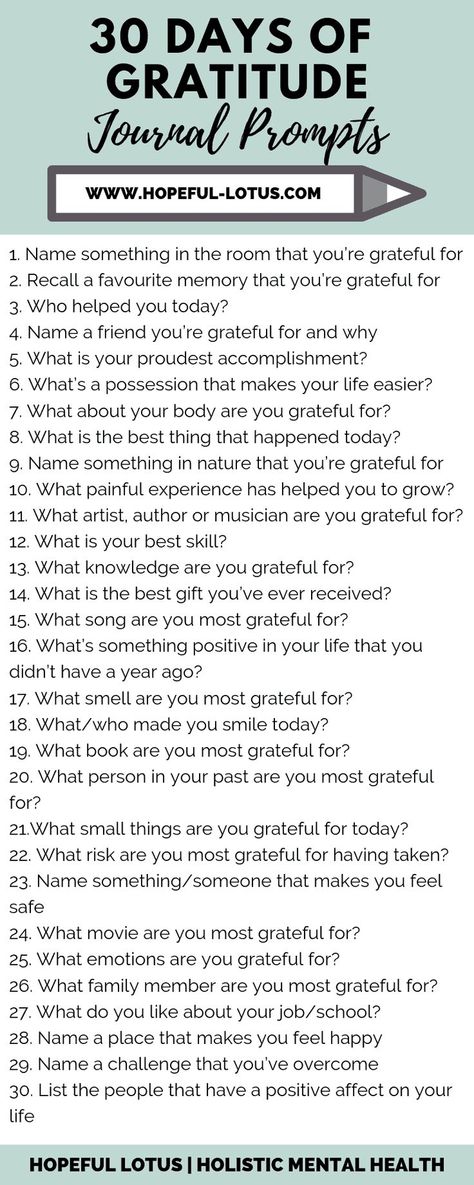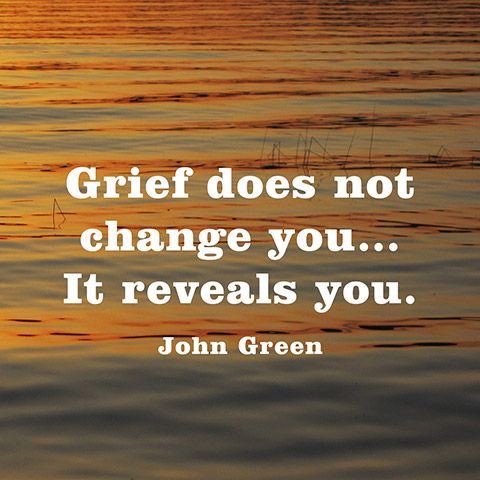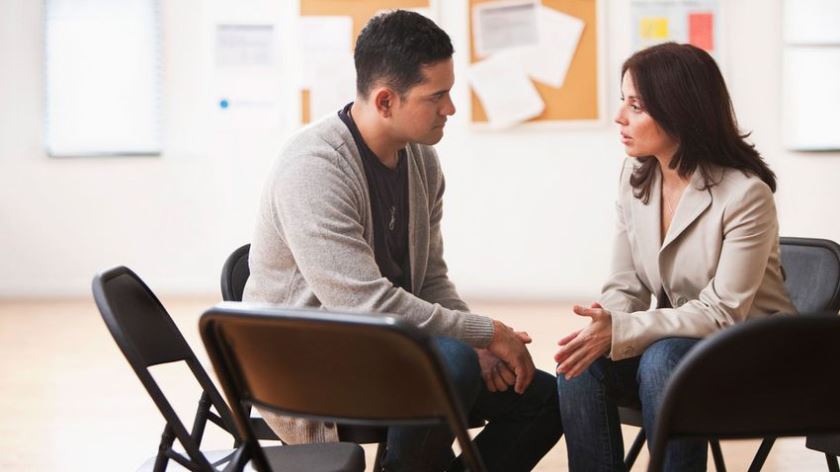Support for therapists
Online Support Groups FOR THERAPISTS During the COVID-19 Pandemic
Welcome! I hope we can help you find an online group designed for therapists.
If you know of any online groups for therapist that are not on this list, please CONTACT ME and I will post them here.
Here is a link to my full list of online groups for therapists. The clinicians running these groups are WONDERFUL! I have met many of them, and trained with a few. Most are Certified Group Psychotherapists, which means they know how to run effective groups.
Many of these online groups for therapists existed before the COVID-19 pandemic. However, some were created recently in response to the increased number of therapists wanting to engage in online group work.
I encourage you to read through this list to see if there is a group that is right for you.
Online Process Groups for Therapists
Nate Page, PhD, LP, CGP
Nate runs FOUR different Online Process-Oriented Training Groups for Therapists:
(1) Tuesdays 7:30-9:00pm (Central Time) – Every 2nd and 4th Tuesday of each month
(2) Tuesdays 7:30-9:00pm (Central Time) – Every 1st and 3rd Tuesday of each month
(3) Thursdays 7:30-9:00pm (Central Time) – Every 2nd and 4th Thursday of each month
(4) Wednesdays 11:00am – 12:30pm – Every 1st and 3rd Wednesday of each month (Co-faciltator: Sophia Aguirre, PhD, CGP, FAGPA)
Join Nate’s Group Here!
Two-Day Group IntensivesThese groups are lead by one or two highly skilled group leaders, and are filled with 6-9 compassionate group members that are dedicated to creating a rich, deep and meaningful process experience. This group intensive is based on the institute model used by the American Group Psychotherapy Association.
These groups are lead by one or two highly skilled group leaders, and are filled with 6-9 compassionate group members that are dedicated to creating a rich, deep and meaningful process experience. This group intensive is based on the institute model used by the American Group Psychotherapy Association.
After completing your application we will find a time for a 45-minute pre-group interview with the group leader(s) to talk through your goals for group, answer questions you have, and help you determine if this is a good fit.
Upcoming Group Intensives:
Thursday/Friday May 13 & 14, 2022 (Online)
Thursday/Friday August 18 & 19, 2022 (In-Person in Northfield, MN)
Thursday/Friday 10 & 11, 2022 (Online)
Learn More about the 2-day Group Intensives
Consultation & Process Groups for TherapistsSophia Aguirre, PhD, CGP, FAGPAGroup will meet biweekly online via Zoom with the opportunity to meet once per year for an extended group session in person at Dr.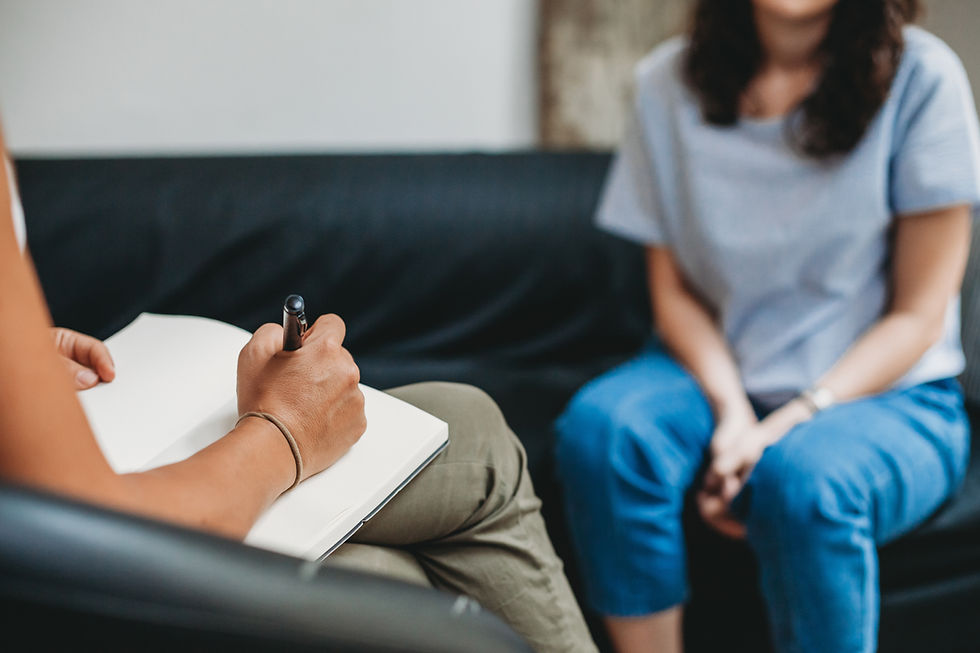 Aguirre’s office in Atlanta. *Group day will be chosen based on what works best for the collective group member’s schedules.
Aguirre’s office in Atlanta. *Group day will be chosen based on what works best for the collective group member’s schedules.
More information and registration link available at: https://www.inclusivepsych.com/bipoc-therapists-group
Process & Consultation Group For Therapists (NEW Group Forming!)
Tuesdays 3:00pm – 4:30pm EST (meets every 2 weeks)
Process & Consultation Group For BIPOC & Latinx Therapists*
Fridays 12:00pm -2:00pm EST (meets every 2 weeks)
Group is Full. Waitlist available.
Process Training Group for Therapists
Wednesdays 12:00pm -1:30pm EST (meets every 2 weeks)
Co-facilitated by Dr. Sophia Aguirre & Dr. Nate Page
Group is full. Waitlist available.
Group therapists pursuing CGP certification that are in need of accruing hours towards the 75 supervision hour requirement; this group will meet those requirements.
Contact Dr. Sophia Aguirre to schedule a 45-minute initial pre-group consultation ($85 fee) to explore your goals, answer your questions, review the group expectations and assess if this group will meet your needs.
A minimum commitment of 10 sessions is required for all new group remembers.
Attachment-Focused Somatic Experiencing Training Group for PsychotherapyCarlos Canales PsyD, FAGPADESCRIPTION: Attachment-focused therapy and Somatic Experiencing (SE) are fundamental and applicable theories in psychotherapy. They honor our bodies, emotional regulation, interdependence, and well-being. They are positive, ethological, humanistic, and developmental theories.
This training group aims at fostering psychological depth and growth. By paying attention to our bodies and our emotions, the way we attach, we will notice how we bring and sustain support in our lives. We will examine our regulating strategies, improve our presence, empathic witnessing, and overall relational stance.
COST: $75 per session.
WHY JOIN A TRAINING GROUP? The art of psychotherapy is best learned by observation, imitation, inquiry, and participation. Group psychotherapy, in particular, requires the collaborative investment of the communal. All of life
Group psychotherapy, in particular, requires the collaborative investment of the communal. All of life
happens in groups! They allow the exploration of the movement from the intrapsychic to the interpersonal, the private to the public, and the cultural and systemic.
If interested, please contact:
[email protected]
Haim has a couple online training/process groups designed specifically for therapists. His groups are comprised of therapists from around the world. The format consists of 90 minutes of processing followed by 15 minutes of debriefing.
Haim might be the most renouned online group therapy expert in the world today. He has written profusely on the subject, created online training programs for group psychotherapists, and has been instructing several international organizations on how to run online therapy groups.
Please contact Haim at [email protected] or 916-212-6424 to learn more about his groups for therapists and to determine if you are a good fit.
Racial Literacy Groups for TherapistsChrstine Schmidt LCSW, CGP & Rudy Lucas LCSW, CASACChristine & Rudy (plus several additional colleagues) offer several different online groups designed to develop your racial literacy:
Whiteness Learning groups * Racial Literacy groups * Racial Literacy Consultation groups
Some groups are in-person in the NYC area and some are online via Zoom available to anyone in the world. Their website contains robust information about all of their services:
Contact Christine or Rudy through their website and feel free to ask any questions you might have, or simply register for a group: racialliteracygroups. com
com
Wednesdays 8-9:15 PM EST / 7-8:15 PM CST
Please contact Dr. Bob at [email protected] for more information, group screening, etc.
DESCRIPTION: Teresa Lee, MD, and Robert “Dr. Bob” Hsiung, MD, are psychiatrists and Asian identified group therapists who live on different coasts. Their broad definition of “Asian” invites those therapists and trainees to come together, even if there is a struggle to identify as Asian. Because this group is online, therapists/trainees *from all time zones* are invited to explore the intersectionality of their culture, chosen profession, and individuality.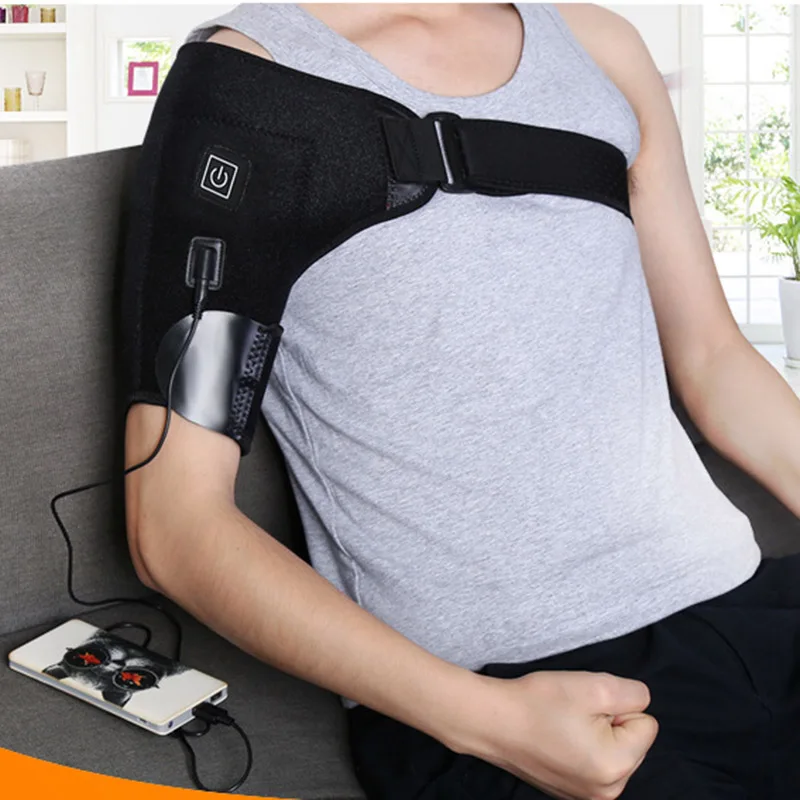 In this weekly group, members will be able to work more intimately with each other including processing events that happen outside the group, like at work, or in the group, including transferences. We encourage members to be brave in their sharing, spontaneous, and work with other members and facilitators to reach their goals, be it support and/or a deeper understanding of how they relate to their work, themselves, and others. Those new to groups are welcome.
In this weekly group, members will be able to work more intimately with each other including processing events that happen outside the group, like at work, or in the group, including transferences. We encourage members to be brave in their sharing, spontaneous, and work with other members and facilitators to reach their goals, be it support and/or a deeper understanding of how they relate to their work, themselves, and others. Those new to groups are welcome.
$75 ($40 for trainees) per session.
Annie Weiss LICSW, CGP, FAGPA These diverse, process-oriented training groups utilize group process and clinical case consultation to deepen clinical awareness, flexibility and skill, identify and work through blindspots, explore interpersonal relationships, settle our activated nervous systems, and create space for connection, exploration and healing.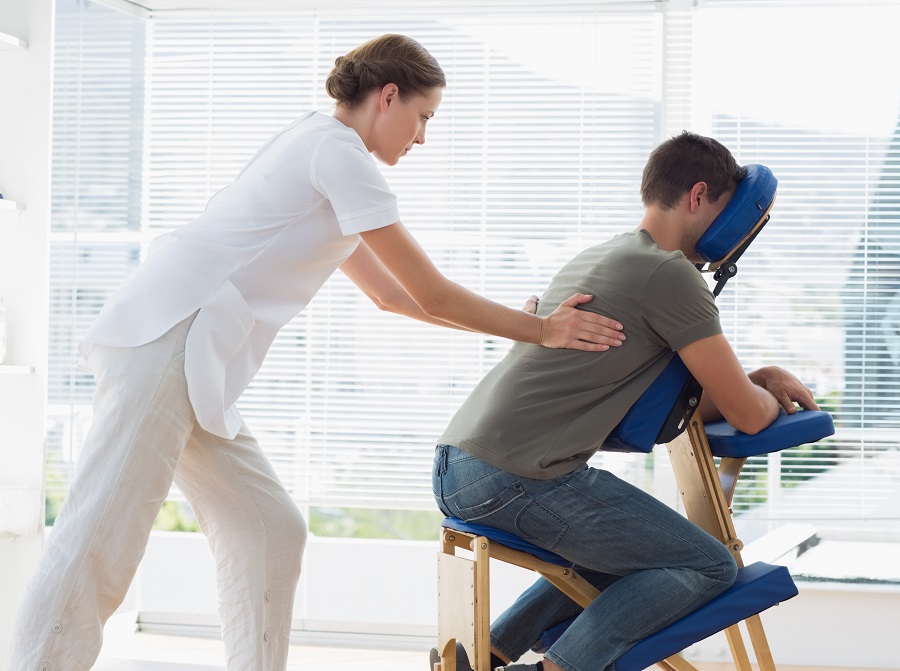
Annie Weiss is a Fellow of the American Group Psychotherapy Association and a Certified Group Psychotherapist. She has led and taught on the subject of interpersonal psychotherapy groups for over 25 years. Annie integrates psychodynamic theory, attachment theory, and interpersonal neurobiology to catalyze interpersonal connection and development in here-and-now group interactions.
Annie currently leads online psychotherapy groups, online training groups and online consultation groups. She also teaches group dynamics to Harvard Medical School students at McLean Hospital, leads five ongoing therapy groups, facilitates an experiential training group for the Jung Institute of Boston, consults to two community mental health centers, and taught a webinar on group leadership to psychology students in Beijing. She has presented workshops and led experiential groups locally, nationally and internationally. Annie has published several papers about group therapy and is currently co-editing a book on Women group psychotherapy leaders. Annie holds degrees from Yale University and Smith College, and lives near Boston, Massachusetts.
Annie holds degrees from Yale University and Smith College, and lives near Boston, Massachusetts.
You can connect with Annie through her website: http://www.annieweisstherapy.net/ or by phone at 617-244-9009
Online Consultation Group for TherapistsBiweekly Tuesdays 3:30-5:00 p.m. E.S.T
Online Process Training Group for CliniciansTuesdays 1:30-3:00 p.m. E.S.T
Online Process Training Group for CliniciansThursdays 1:00-2:30 p.m. E.S.T
Online Process-oriented Training Group for Therapists.
Linda Eisenberg MA, EDd, LPC, LPA, CGPLinda Eisenberg, MA, MEd, certified Psychoanalyst, is offering an online process-oriented training group (via Zoom) for therapists. Linda is a graduate of Center for Group Studies as well as Naropa University.
This group began in the fall of 2019. It runs Wednesday mornings, PST. It is experiential in nature and offers opportunities for personal and professional growth, consultation and a sense of community. \
\
You may contact Linda with questions at 503-236-9777, cell 503-705-9644, or email [email protected]
Online Modern Analytic Training Group for Therapists Dave Kaplowitz LMFT, CGPDave Kaplowitz LMFT, CGPDave is a highly qualified group psychotherapist and has been leading training groups for a long time.
He specializes in conducting Online Modern Analytic Training Groups for therapists.
Please reach out to them with any questions at [email protected].
Online Process-oriented Training Group for Therapists
Katie Griffin MA, CGP & Joseph Acosta MA, LPC, CGP, FAGP
11:15am-12:30pm Central Time on Thursdays
Katie and Joseph are also highly qualified group therapists and have been co-leading a training groups for therapists for over two years.
They currently have a couple of spots open. It is at 11:15am-12:30pm Central Time on Thursdays.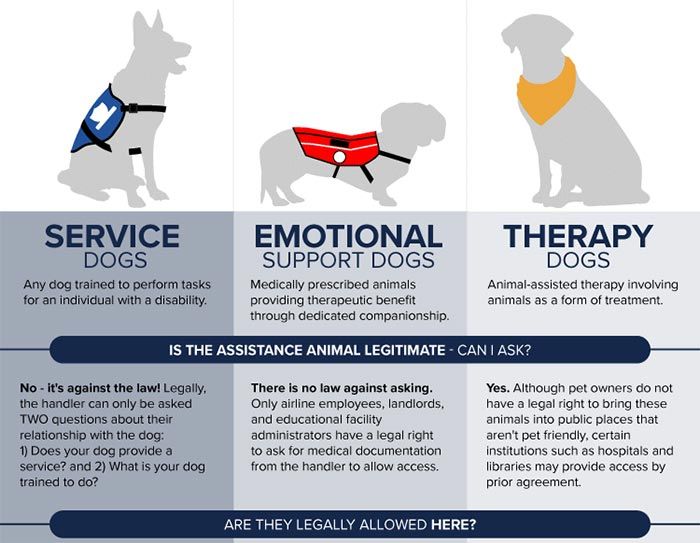
Please email or call Katie Griffin, (512) 656-4067 or [email protected]
Coaching and Mastermind Groups for Therapists
Cindy Hardwick PhD, PCC, CGPAre you are ready to move beyond anxiety and burnout as you transition to the next phase of your work and life? My groups are designed to support you to connect to what’s most authentically true for you to create a meaningful path forward that better fuels and sustains you.
This is a growth enhancing experience. It’s not therapy, yet it’s highly therapeutic. We’ll create a space allowing you to flourish at the edges of possibility as you process and incubate what’s next for you. You’ll also experientially learn here about group principles and group dynamics. I have three groups that help you design your life and work in ways to enhance meaning, purpose, and your sense of overall wellbeing:
Monday Process Group, 1:30 – 3:00 PM (Eastern Time)
Wednesday Combination, Please contact Cindy for precise times
Wednesday Incubation, 1:30 – 3:00 PM (Eastern Time)
Each group has an opening or a wait list. Participation includes a monitored text connection platform plus invitations to relevant Zoom PopUp events for between group connections. Each has a minimum commitment and a confidentiality agreement including for intellectual property. We’ll meet first to determine needs, goals, and goodness of fit.
Participation includes a monitored text connection platform plus invitations to relevant Zoom PopUp events for between group connections. Each has a minimum commitment and a confidentiality agreement including for intellectual property. We’ll meet first to determine needs, goals, and goodness of fit.
About Me: I’m a Licensed Psychologist, Professional Certified Coach, and Certified Group Psychotherapist with four decades of diverse practice experience. Over the years, I’ve developed an appreciative and creative approach to wellbeing. My theoretical foundation is psychodynamic, and I’m both trauma and neuroscience informed. In recent years I’ve learned that mindfully creative practices enhance and sustain wellbeing. I consider myself a lifelong learner who journeys alongside you.
Learn more via my website at cynthiahardwick.com. Email me at [email protected]. Leave a voicemail on my landline at 910-485-1819.
Please contact Cindy regarding goodness of fit: [email protected], Phone: 910-485-1819
(Modern Analytic Training Group for Mental Health Professionals
Heather Frank PsyD, CGP & Jim O’Hern LCSW, CGPMondays 10:00-11:15am (Central Time)
This Online Modern Analytic Training Group is for professionals in the mental health field interested in furthering their group training and leadership. The professional ego is the focus of the training group and all thoughts, feelings and associations to the process are explored in the online group.
The group is a combination of case consultation, practice development, and experiential learning aimed at further developing connections to colleagues and strengthening the therapist’s professional ego. Group will meet on Mondays 10:00-11:15am Central Standard Time.
For additional information or to join please contact:
Heather Frank: DrHeatherLFrank@gmail. com or
com or
Jim O’Hern: [email protected]
Weekly Online Training Groups for Therapists
Jeff Hudson MEd, LPC, CGP, FAGPAMondays 6:30-8:00pm or Tuesdays 12:00-1:30pm (Central Time)
Jeff leads two weekly online training groups for therapists. The Monday group has been meeting for 5 years and meets from 6:30-8:00pm Central Time. His Tuesday group began in May 2019 and meets from noon-1:30pm Central Time.
For more information please call Jeff at 512-472-7476.
Case-consult/process Group for Therapists.
Rebecca Compton MEd, LPC, CGP, NCC, BCCRebecca has a case-consult/process group for therapists that is part in-person in Madison, Wisconsin and part online for therapists out of state. It meets twice monthly on the 2nd and 4th Wednesdays of the month from 11:00am-12:30pm Central Time. It is currently running and has a couple of slots open.
Feel free to learn more about Rebecca and her groups on her website https://rebeccacompton. org/ and please contact Rebecca for more information about joining this particular group (608) 772-6870, or [email protected]
org/ and please contact Rebecca for more information about joining this particular group (608) 772-6870, or [email protected]
Online 6-step Group Supervision for Therapist
Arthur Gray PhD, CGPArthur does an online special 6-step group supervision for therapist based on a model he developed in 1996 and has presented at AGPA and in various countries. He currently holds a supervision group via Zoom for Australian practicioners and he is reconstituting his supervision group for the United States.
You can contact Arthur at [email protected]
Teresa Bastos
Teresa is a psychotherapist and group analyst. She plans to start an online training group for therapists. If you are interested, feel free to contact her at [email protected] or 00351 96 744 11 15. You can learn more about Teresa on her website: http://www.psicoterapias-grupanalise.com/
Simon Feuerman PsyDA few people have mentioned that Simon Feuerman runs a group for for therapists.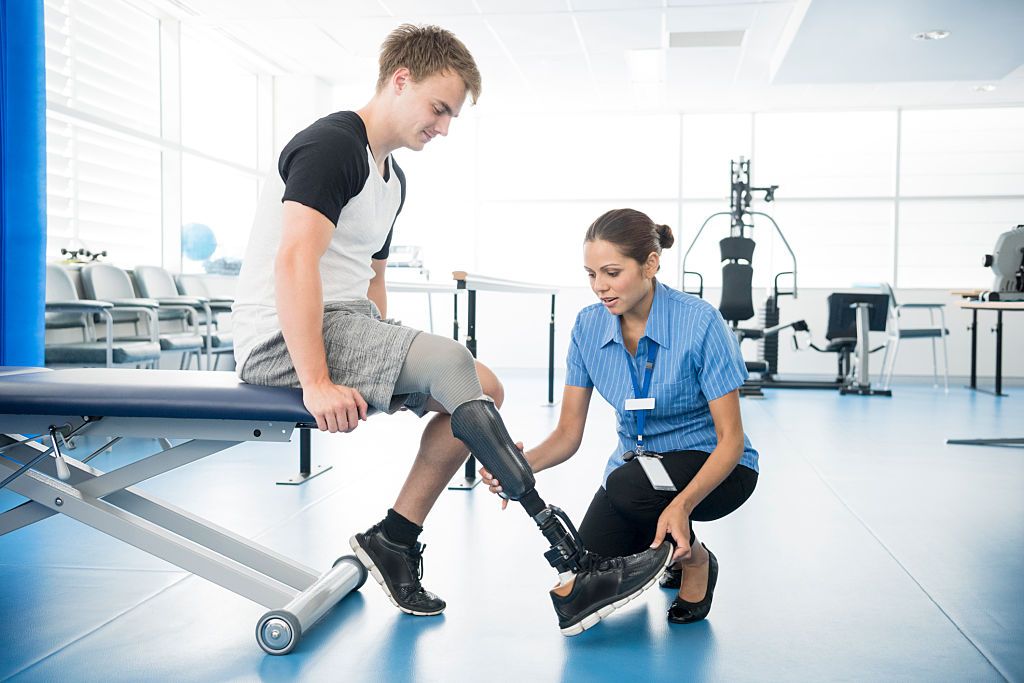 I am not sure if it is an online group. He appears to be located in New Jersey. Feel free to reach out to Simon at [email protected]
I am not sure if it is an online group. He appears to be located in New Jersey. Feel free to reach out to Simon at [email protected]
Leo Leiderman PsyD, ABPP, FAACP, CGP, FAGPA had set up a support group for members of the Westchester Group Psychotherapy Society (WGPS).
Margaret M. Postlewaite, PhD, CGP, SEP, FAGPA offered a support group to colleagues from the Westchester Center for the Study of Psychoanalysis and Psychotherapy (WCSPP).
Liz Stewart is offering an Ongoing Body Language Training Group for therapists.
Description: Psychotherapists generally agree that listening is a multilayered, and active process that goes beyond the words. It also includes, and can be both in and out of sync with, the body. In what ways does your body agree with your words? When are your clients’ words out of tune with what their body appears to be saying? We will explore the idea that paying attention to your body provides access to nonverbal and unverbalized realms of communication in your work with clients. This is especially important in this time of all-day video and phone sessions. When we learn to pay closer attention to our own body’s language we expand our instrument’s range to include new information. This training group is designed to help mental health professionals integrate their own body’s subtle cues with the wide range of thoughts and feelings that arise in the course of working with patients.
This is especially important in this time of all-day video and phone sessions. When we learn to pay closer attention to our own body’s language we expand our instrument’s range to include new information. This training group is designed to help mental health professionals integrate their own body’s subtle cues with the wide range of thoughts and feelings that arise in the course of working with patients.
Format and Fees: The group meets weekly by Zoom on Thursdays, from 10:00-11:30am EST. The fee for the group is $80 per session, payable at the end of the month. To join the group, CLICK HERE to schedule an initial 50 minute interview with Liz to explore your goals and determine fit. The fee for the initial interview is $225.
Learning Intentions:
- Notice ways in which tension shows up in the body while working with clients
- Distinguish between subtle and obvious embodied cues
- Make connections between your own body’s cues and your client’s material
- Observe when the intellect interferes with embodied knowledge and when the body interferes with intellectual knowledge
- Learn techniques for regulating your nervous system and integrating your myofascia
Liz Stewart draws from 30 years of experience as a highly accomplished Structural Integration (aka Rolfing®) practitioner, supervisor and trainer.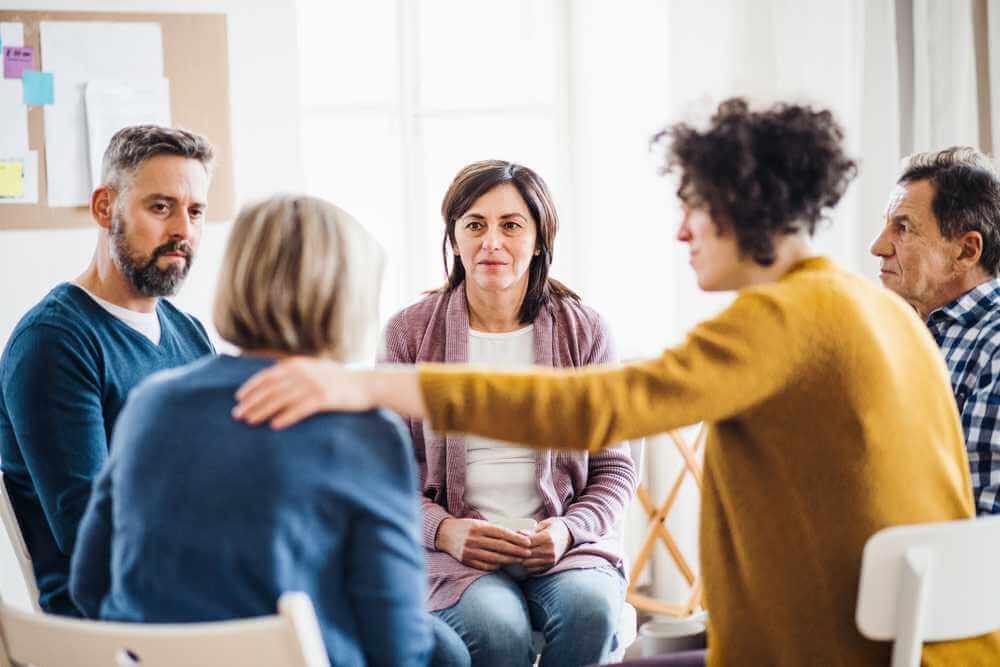 Liz both supports and challenges her clients to understand, cultivate and make full use of themselves in their work. Liz’s approach to training mental health professionals in groups is engaging, connective and supportive (much like the fascial network that holds our bodies together) and includes a strong emphasis on body awareness. Her understanding of tensional forces, integration and connection set Liz apart as a supervisor and trainer. She supports mental health professionals in learning their own body’s language – its cues and triggers – that speak in mysterious ways. Liz brings experience in Structural Integration, movement awareness, Polyvagal Theory, neural vascular techniques, modern group therapy, trauma dynamics, decoding body language and business management. Liz’s work has been described as “comprehensive, deeply transformative, highly intuitive, observant, and fun.”
Liz both supports and challenges her clients to understand, cultivate and make full use of themselves in their work. Liz’s approach to training mental health professionals in groups is engaging, connective and supportive (much like the fascial network that holds our bodies together) and includes a strong emphasis on body awareness. Her understanding of tensional forces, integration and connection set Liz apart as a supervisor and trainer. She supports mental health professionals in learning their own body’s language – its cues and triggers – that speak in mysterious ways. Liz brings experience in Structural Integration, movement awareness, Polyvagal Theory, neural vascular techniques, modern group therapy, trauma dynamics, decoding body language and business management. Liz’s work has been described as “comprehensive, deeply transformative, highly intuitive, observant, and fun.”
Register for Liz’s Group Here
Joshua M. Gross, Ph.D., ABPP, CGP, FAGPA, FAAGP conducts online groups for mental health professionals.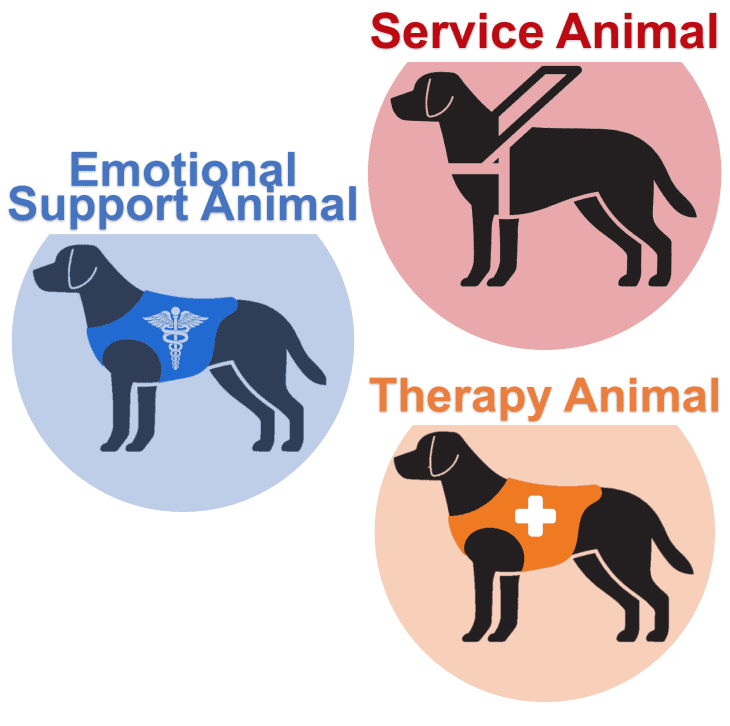
Vinny Dehili, Vice President of Florida Group Psychotherapy Society, has been holding Community Drop in Zoom groups each week for therapist working in college counseling settings.
I hope you were able to find a potential group for you. If not, please feel free to reach out to us here at Group Therapy Central if you would like help in the process of connecting to a good group.
Contact Us
10 Self-Care Tips for Psychologists, Therapists & Counselors
Practicing self-care may be one of the most selfless activities in which we engage.
For professionals working toward others’ psychological wellness, where emotional costs can be considerable, self-compassion, self-awareness, and healing are essential (Delgadillo, Saxon, & Barkham, 2018).
Not only is self-care critical for the wellbeing of the therapist, counselor, or psychologist, it also impacts patient outcome (Pereira, Barkham, Kellett, & Saxon, 2017).
So how do you reduce burnout and emotional exhaustion when time, energy, and financial resources are limited?
This article explores small but crucial habit-forming changes that have a significant impact personally and professionally when caring for others (Bush, 2015).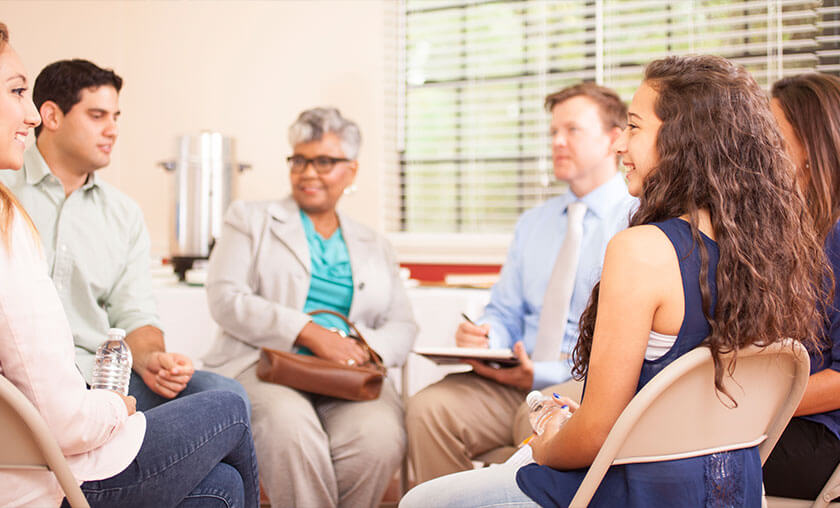
Before continuing, we thought you might like to download our three Self-Compassion Exercises for free. These detailed, science-based exercises will help you increase the compassion and kindness you show yourself and give you the tools to help your clients, students, or employees show more compassion to themselves.
This Article Contains:
- Mental Health and the Therapist
- Macro and Micro Self-Care
- 8 Strategies for Coping With Work Stress
- PositivePsychology.com’s Resources
- A Take-Home Message
- References
Mental Health and the Therapist
We often ignore the impact an individual’s mental health problem has on those around them, but it is very real.
Research has shown that parents of children with mental illnesses are themselves at risk of developing mental health issues and report a range of negative emotions including self-blame, anger, and frustration (Arbuthnott & Lewis, 2015).
Without adequate care, the mental health professional is equally at risk of “burnout, vicarious trauma, and compassion fatigue,” says Ashley Davis Bush (2015).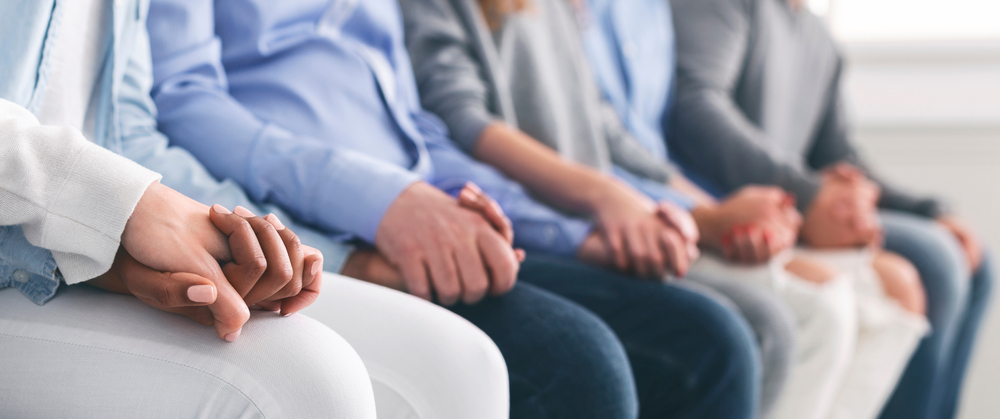 And while the warning is stark, it is of genuine concern for anyone whose focus is others’ wellbeing.
And while the warning is stark, it is of genuine concern for anyone whose focus is others’ wellbeing.
A report from 1990 found that nurses, therapists, social workers, and psychologists in psychiatric hospitals faced high occupational burnout levels, increased psychological health problems, and lowered job satisfaction (Hiscott & Connop, 1990).
More recently, research recognized that burnout among mental health professionals, while of significant concern personally, may also affect their clients’ treatment. Findings suggest that providing therapy can be challenging and emotionally taxing, potentially leading to “vicarious traumatization and secondary traumatic stress” (Delgadillo et al., 2018).
Not only that, occupational burnout can result from extreme emotional exhaustion caused by empathically supporting people in severe distress (known as compassion fatigue) and is made worse by increasing workload and time pressures (Delgadillo et al., 2018).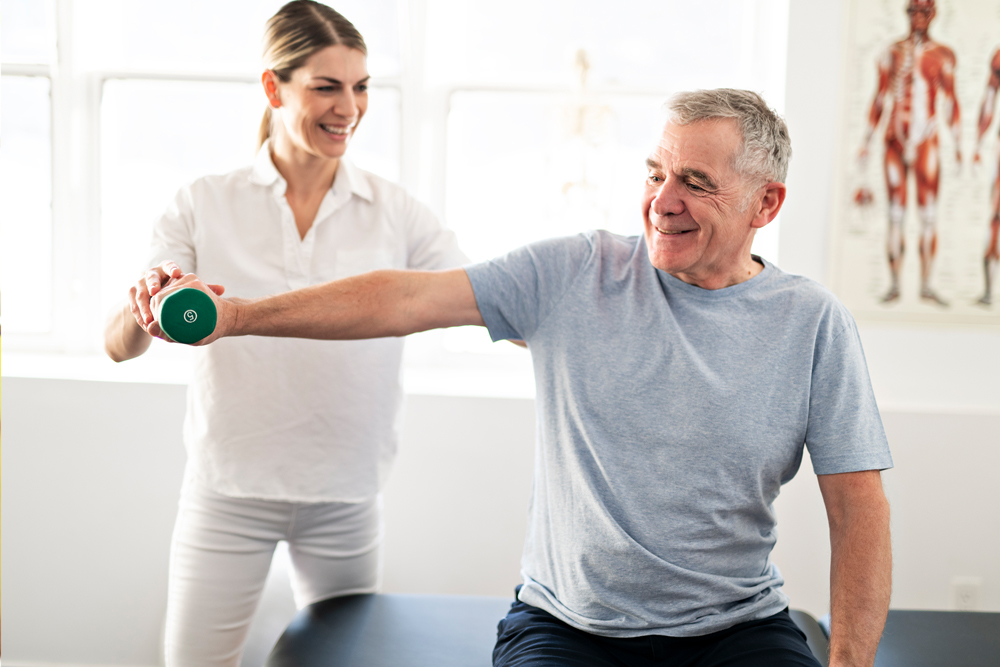
However, like their clients, professionals’ mental health can benefit from training and interventions, and ultimately improve patient outcomes (Pereira et al., 2017).
Macro and Micro Self-Care
With between 21% and 67% of mental health workers experiencing occupational burnout, it is paramount that therapists, psychologists, and counselors take care of themselves while looking after others’ needs (Delgadillo et al., 2018).
“Being kind to yourself is one of the greatest kindnesses.”
Mackesy, 2020
However, self-care can mean different things to different people. While some may picture self-care as a glass (or two) of wine beside a roaring fire in the middle of winter, for others, it is time spent by the water with nothing to do but work through a pile of beach reads. And that’s okay; we are all different.
In Simple Self-Care for Therapists, Ashley Davis Bush (2015) describes macro self-care as “the important traditional category of self-care that includes the big stuff,” such as eating well, getting enough exercise, taking a vacation, and forming positive relationships.
However, while essential to our wellbeing, such interventions require a significant commitment of time, energy, and, all too often, money.
On the other hand, micro self-care refers to “practices that are simple enough to fit into your existing schedule, your current energy level, and your budget.” Implementing such small changes to your life can nudge your brain toward being more aware and serene and cause positive changes to your thinking (Bush, 2015).
So, let’s take a closer look at both.
Macro self-care
Broadly speaking, macro self-scare falls into four categories, equally valuable for therapist and client (Bush, 2015).
Health care
In the absence of good health, life can be a struggle, impacting our emotions, cognition, and behavior.
The necessity of good sleep is widely accepted and impacted by sleep hygiene (the practices performed around sleep), the environment, use of stimulants, and the amount of sleep (Puentes-Mestril & Aton, 2017).
Exercise is equally important to both physical and mental wellness (Kalak et al., 2012). Keeping physically fit slows the aging process, keeps our cognitive processes sharp, and supports a healthy immune system.
The food we eat further affects our wellbeing, and maintaining a healthy balanced diet is advisable for our physical and mental health (LaChance & Ramsey, 2015).
Taking a vacation
Taking time off is crucial for the body and mind to break from routine and recover from overload. According to the American Psychological Association (2018), while the benefits may only last for a brief spell, “taking time off helps most U.S. workers recover from stress and experience positive effects that improve their wellbeing and job performance.”
Balance
All areas of our lives must receive the attention required to meet our needs, avoiding unhelpful, excessive focus on one or two aspects at the cost of others (Bush, 2015).
Unhealthy relationships are often the subject of discussion in therapy and can negatively impact growth and healing (Hannah & Luquet, 2005). A positive relationship is just as beneficial for the mental health professional as their client.
A positive relationship is just as beneficial for the mental health professional as their client.
Hobbies provide a positive focus for our interests and the opportunity to foster our individuality, self-expression, and creativity.
Being part of a community and involvement in spiritual practices (though not necessarily religious) can help us develop a healthy relationship with others and ourselves.
Treats
Life’s little pleasures provide color, excitement, and an element of spontaneity to our days.
“Pepper your life with small rewards and simple pleasures that scream loudly celebration! (or whisper quietly, yum).”
Bush, 2015
So, why don’t we engage in macro self-care all the time?
Many mental health professionals don’t have the time, finances, or other resources for adequate macro self-care. They may feel that taking time and effort to look after themselves is a luxury or, at worst, uncaring when we consider others’ suffering.
And yet, not looking after ourselves could be an act of selfishness. If we burn out, we will not be available to help anyone. Working daily with those who are suffering while being emotionally overloaded and experiencing compassion fatigue will not benefit our clients.
The crucial question is, then, how do we look after ourselves in a manageable and sustainable way?
Micro self-care
Micro self-care provides a way for busy professionals (possibly with the added challenge of a family and other commitments) to fit self-care into their lives.
Such techniques are low cost, financially and in terms of other resources, and can be built into our everyday lives; for example, when (Bush, 2015):
- Waking and before going to sleep
- Starting and finishing a day of work
- Beginning, between, or after a session
8 Strategies for Coping With Work Stress
Based on Bush’s (2015) concept of micro self-care, the following strategies are valuable for taking care of yourself daily and managing stress.
1. Feeling love
Feeling love is a grounding practice to create feelings of connectedness and love, helping to train the brain to be better able to both give and receive love:
- At the start of each day
- Imagine breathing in and out the word love, receiving it from and giving it to your family, partner, and friends
Visualize love flowing in and out of you as part of an endless cycle, including you and those you care about.
2. Circle of care
Circle of care is an energizing exercise to feel more connected with a broader community of helpers (Bush, 2015).
- After you arrive at your place of work and before you begin your first activity
- Hold a circular object in your hand. It could be a coin, ball, or marble, etc.
- Imagine helpers everywhere supporting people and say to yourself, “I am part of a vast group of helpers around the world.”
- Think of the important role you play in this group and how you are making a difference.
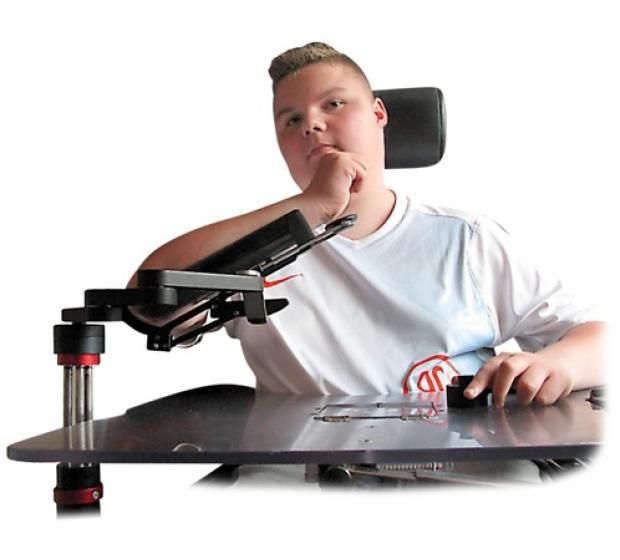
Being part of something bigger, developing relationships, and knowing you have a positive impact can make a big difference to feelings of connectivity while reducing your sense of isolation.
3. Tea in a bubble
This exercise is an easy-to-implement yet valuable mini-intervention that fits nicely into regular day-to-day activities.
- Even if you cannot take a long break, try to find five minutes. Set a timer if you need to, and if possible, protect this time from interruption.
- Stop all other activity, and sit “in a bubble of being rather doing” (Bush, 2015).
- Enjoy your favorite drink (tea, coffee, water, etc.).
- Experience the moment. Feel the heat of the drink in your hands, its temperature in your mouth, its smell and taste.
- Keep these few moments of peace sacred. Do not check your social media, email, or missed calls; just be.
- It’s difficult to do nothing, yet mindful eating (and drinking) can be hugely beneficial (Shapiro, 2020).

4. 4–7–8 Breath
The positive effects of breathing techniques – typically involving an out-breath that is longer than the in-breath – are well known and can provide an immediate calming effect on our central nervous system, making us less reactive (Nestor, 2020).
- Breathe in through your nose to a count of four.
- Hold your breath for a count of seven.
- Exhale to the count of eight. Pursing your lips may help.
- Repeat the cycle at least twice.
You can easily perform this exercise in almost any situation. It can be repeated several times for an urgent reset or over a prolonged period for more profound, more effective relaxation.
5. Daily intention
Setting an intention for each day can be self-fulfilling and may be best performed upon waking up or when sitting and having a favorite drink (Bush, 2015).
- Say the intention to yourself (out loud or in your head) in the present tense.
Such as:
Today, I am open to joy.
Today, I am grateful for all that I have in my life.
Today, I am open to new ideas. - Give yourself a few minutes, breathing in your intention.
- Don’t rush to start the day.
6. Embrace yourself
Touch is crucial to each of us, and even hugging ourselves can reduce physical and emotional pain while providing feelings of safety (Bush, 2015).
This technique can be especially valuable either before a session when feeling nervous or after when feeling you have failed a patient.
- With your arms wrapped around yourself – chest or shoulders – hold yourself tight for 20 seconds.
- Imagine yourself as a small child being hugged by your older self.
7. Five senses
Mindfulness can be incredibly beneficial cognitively, emotionally, and physically. As therapists, we often prescribe such techniques to our clients, yet we must not forget their benefit to ourselves personally and professionally.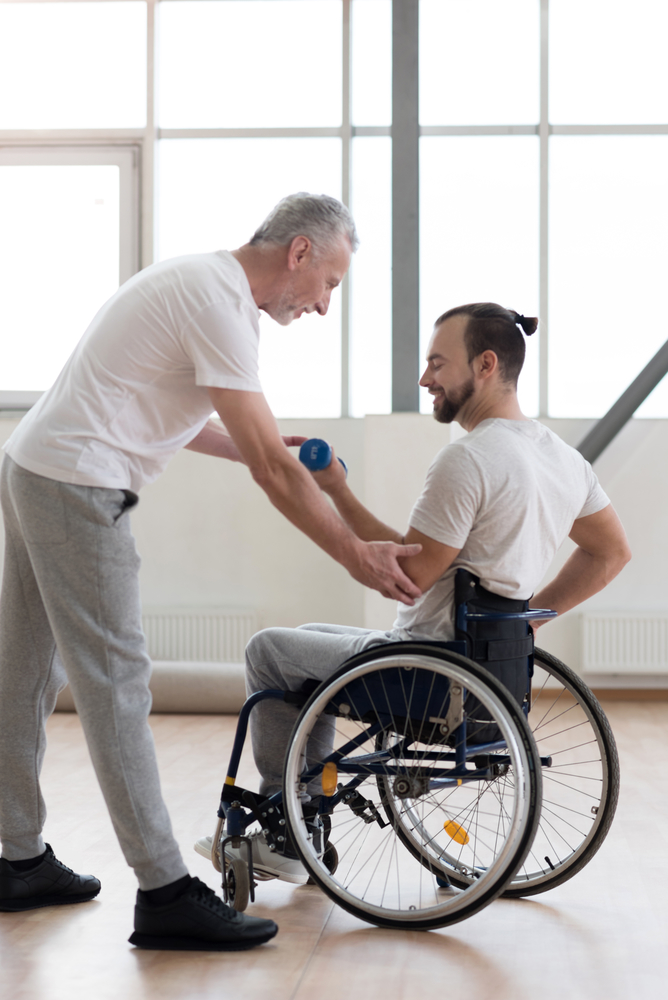
A tour of the five senses is one such technique (Bush, 2015).
- Sitting in a chair with your hands open, breathing gently and comfortably, notice the present.
- Using the acronym SSSTT, follow through the five senses with your fingers.
- Sight – Closing (bending) your thumb, find a focus for your eyes, and explore the object, attending to details you haven’t noticed before.
- Sounds – Closing your pointer finger, listen to the sounds and the surrounding silence.
- Smells – Enjoy both the in-breath and the out-breath while you close your middle finger. Feel the movement of the air on your nostrils and lips and pay attention to any smells.
- Touch – Close your ring finger and notice the chair you are sitting on, supporting your weight and your back. Feel the clothes you are wearing and the air on your skin.
- Taste – Close your pinky finger and become aware of your mouth, the sensations on your tongue, and the taste of your saliva.

Remain in this moment, appreciating how amazing your body is and how it interacts with the environment surrounding you.
8. Reflection on impermanence
Bush (2015) provides this self-reflection exercise as a technique for increasing our gratitude in life. Through making friends with impermanence, we are less likely to take what we have for granted.
- Rest your gaze on an object (a flower perhaps), and while examining its inherent beauty, recognize its transience.
It is here now, but it will pass, as do all things.
- Bush suggests saying, “This object has come and it will go,” then placing your hand on your heart and saying, “I savor the present moment. I choose to live my life while it lasts.”
An awareness of death need not be negative. Instead, it can provide energy and invigoration to life.
Ashley Bush provides many other such wonderful micro self-care techniques in her book Simple Self-Care for Therapists (2015) that can be repeated and alternated when needed.
Explore the practices and build a good level of self-care into your day. Not only will you feel better, but they will improve your capacity for empathy and provide more clarity when helping others.
PositivePsychology.com’s Resources
We have many tools and techniques to encourage self-awareness, relaxation, and learning. They can all help you feel calm, grounded, and present. Try out a few of the following at the start, end, or in gaps during the day.
- We are often most harsh when we criticize ourselves. The Catching your Critic worksheet helps us recognize self-critical thoughts for what they are and challenge them or rein them in.
- Another useful tool for managing our inner critic is the Letter of Self-Compassion exercise. This exercise prompts us to refocus our thinking on being more accepting, caring, and supportive of ourselves and others.
- The Easing “Empathy Distress with Compassion Worksheet aims to avoid excessive negative feelings resulting from empathy and replace them with positive ones.

- The Self-Care Check-in can be used to rate important self-care areas and create a plan for giving more attention to those that are currently neglected.
- Understanding your strengths as a practitioner can be invaluable. Try out Recognizing Your Strengths Worksheet to help identify your unique strengths and develop yourself as a professional.
Besides these excellent exercises, we also have a selection of 23 self-care activities for groups, 10 additional self-care worksheets, and the self-care wheel, which provides practical insight into practicing self-care.
17 Self-Compassion Exercises – If you’re looking for more science-based ways to help others develop self-compassion, this collection contains 17 validated self-compassion tools for practitioners. Use them to help others create a kinder and more nurturing relationship with the self.
A Take-Home Message
Burnout in mental health professionals is a genuine problem, impacting their own wellbeing and that of their clients (Delgadillo et al. , 2018).
, 2018).
Research suggests that the state of a therapist’s wellbeing is vital to their ability to perform and may go some way to explain the variability of outcomes in treating clients (Pereira et al., 2017).
Taking care of yourself is not selfish. Failing to look after your wellbeing (mental and physical) is damaging to your clients and those around you.
By maintaining your wellness and a positive, open state of mind, you can better look after others’ needs and avoid vicarious trauma or empathy overload.
As Bush (2015) writes, “self-love (and the care for that self) is the core prerequisite for all other relationships.” It is not merely a nice-to-have, but an essential practice to ensure clarity and fullness in helping others. Without nurturing growth as a helper, you are unlikely to achieve your potential in helping others with their mental wellbeing.
With inevitable challenges, be they financial, time, or related to other resources, self-care, especially at a micro level, is invaluable (Bush, 2015).
The practices contained within this article can easily be accommodated into the busiest of days and add self-care moments that may otherwise be lost, benefiting both therapist and client.
We hope you enjoyed reading this article. Don’t forget to download our three Self-Compassion Exercises for free.
- American Psychological Association (2018, June 27). Vacation time recharges US workers, but positive effects vanish within days, new survey finds. Retrieved January 6, 2021, from https://www.apa.org/news/press/releases/2018/06/vacation-recharges-workers
- Arbuthnott, A. E., & Lewis, S. P. (2015). Parents of youth who self-injure: A review of the literature and implications for mental health professionals. Child and Adolescent Psychiatry and Mental Health, 9(1), 35.
- Bush, A. D. (2015). Simple self-care for therapists: Restorative practices to weave through your workday. W. W. Norton & Company.
- Delgadillo, J., Saxon, D.
 , & Barkham, M. (2018). Associations between therapists’ occupational burnout and their patients’ depression and anxiety treatment outcomes. Depression and Anxiety, 35(9), 844–850.
, & Barkham, M. (2018). Associations between therapists’ occupational burnout and their patients’ depression and anxiety treatment outcomes. Depression and Anxiety, 35(9), 844–850. - Hannah, M. T., & Luquet, W. (2005). Imago relationship therapy: Perspectives on theory. Jossey-Bass/A Wiley Imprint.
- Hiscott, R. D., & Connop, P. J. (1990). The health and wellbeing of mental health professionals. Canadian Journal of Public Health, 81(6), 422–426
- Kalak, N., Gerber, M., Kirov, R., Mikoteit, T., Yordanova, J., Pühse, U., … Brand, S. (2012). Daily morning running for 3 weeks improved sleep and psychological functioning in healthy adolescents compared with controls. Journal of Adolescent Health, 51(6), 615–622.
- LaChance, L., & Ramsey, D. (2015). Food, mood, and brain health: Implications for the modern clinician. Missouri Medicine, 112(2), 111–115.
- Mackesy, C.
 (2020). The boy, the mole, the fox and the horse. Ebury Press.
(2020). The boy, the mole, the fox and the horse. Ebury Press. - Nestor, J. (2020). Breath: The new science of a lost art. Riverhead Books.
- Pereira, J. A., Barkham, M., Kellett, S., & Saxon, D. (2017). The role of practitioner resilience and mindfulness in effective practice: A practice-based feasibility study. Administration and Policy in Mental Health and Mental Health Services Research, 44, 691–704.
- Puentes-Mestril, C., & Aton, S. J. (2017). Linking network activity to synaptic plasticity during sleep: Hypotheses and recent data. Frontiers in Neural Circuits, 11, 61.
- Shapiro, S. L. (2020). Rewire your mind: Discover the science and practice of mindfulness. Aster.
Schedule of appointments of district therapists - City Hospital No. 2
.
GBUZ CO "City Hospital No. 2"
236034, Kaliningrad, st. Dzerzhinsky, 147.
Dzerzhinsky, 147.
Chief doctor's office:
8 (4012) 30-74-01, 57-83-83
E-mail: [email protected]
) 30-74-01
Unified Call Center: 122 or 8-122
Hotline for patients with pain,
PALLIATIVE STATUS, and their relatives
+7-906 - 237 -62-55 Saturdays and Sundays.)
Advanced and general medical examination,
preventive examinations Dzerzhinsky, 147
for appointment: 8 - 909 - 794 - 44 - 87
from 08.00 to 15.15
PO No. 2, st. Ogareva, 16-18
8 - 909 - 784 - 77 - 25
from 08.00 to 15.15
PO No. 3, st. Aldanskaya, 10-12
for appointment: 8 - 909 - 777 - 86 - 63
from 08.00 to 15.15
We are in social networks: Click!
-
- Information/types of medical care provided
- Structure and governing bodies
- Licenses and other documents
- Contacts
- Independent quality assessment
- Anti-corruption
- Anti-Terrorist Commission
- Purchasing
- We are in the media
-
- Institutional news
- News of the Ministry of Health KO
-
- Mode and work schedule MO
- Schedule of reception of citizens by management
- Rights and obligations of citizens
- Internal regulations
- Q&A
-
- Regulations
- Types of medical care
- The procedure, scope and conditions for the provision of medical care
- Health care accessibility and quality indicators
- Rules for making an appointment for an initial appointment / consultation / examination
- Rules for preparing for diagnostic tests
- Rules and terms of hospitalization
-
- Timing
- Order
- Results
-
- Lean Clinic
- Available environment
- Demographics (Older generation)
-
- Provision Rules
- Prices (tariffs)
- Sample contract
- Medical workers
- Useful information
- Life situations
- Prophylaxis
- Doctor's blog
- Telemedicine
-
- Targeted training
- Personnel program (support measures for medical workers)
- Jobs
- Leave resume
- Orders
- Standards
- Labor protection
- Health workers
-
- Federal regulations
- Normative acts of the Kaliningrad region
- Regulations of the Ministry of Health of the Kaliningrad Region
- Clinical Guidelines
- Institutional regulations
- Personal data processing
-
- Electronic application form
- Reviews
- Thank you doctor!
-
- Manual
- Mode and work schedule
- Divisions
- Targeted training
- HR program
- Vacancies
- Leave resume
Schedule of appointments for district THERAPISTS
NOVEMBER DECEMBER
28.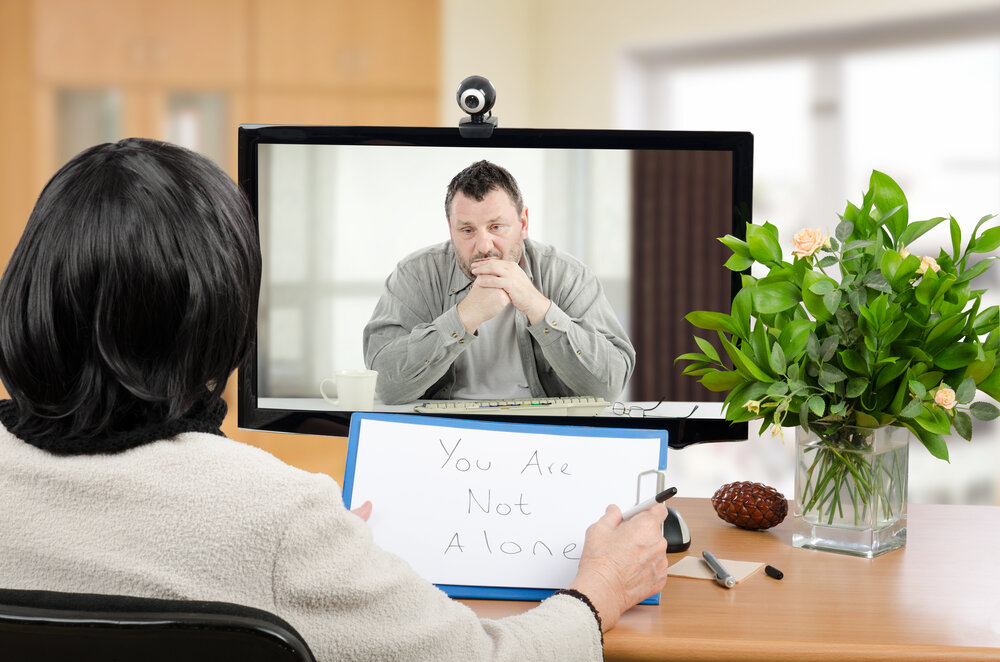 11 - 01.12
11 - 01.12
You can check the information by calling Call Center:
122, 8-122 (toll-free)
| Cabinet No. | Full name | Monday | Tuesday | Wednesday | Thursday | Friday | |
| 17 2nd floor | SHRUBIKOVA Tamara Ivanovna | | 12-16 Admission patients | 16-20 Reception patients | 12-16 Admission patients | 12-16 Admission patients | 12-16 Admission patients |
| 3 account 40 1st floor | SIM Anastasia Sergeevna | Service calls | 15-20 Admission patients | Medical examination 15-20 | 15-20 Admission patients | 15-20 Admission patients | |
| 21 account number 34 (33.  49) 49) 2nd floor | MERENKOVA Vera Laimanovna | | 11-16 Admission patients | 8-12/receive no record cont. | 15-20 Admission patients | Medical examination 14-20 | 8-13 Admission patients |
| 17 account No. 39 2nd floor | SPORTCO Galina Andreevna | 15-20 Admission patients | 12-17 Admission patients | Medical examination 14-20 | 8-13 Admission patients | 15-20 Admission patients | |
| 21 account. No. 43 (37.38) 2nd floor | MIRZOYAN Anna Borisovna | | no reception | Medical examination 14-20 | 8-12/receive no record cont. 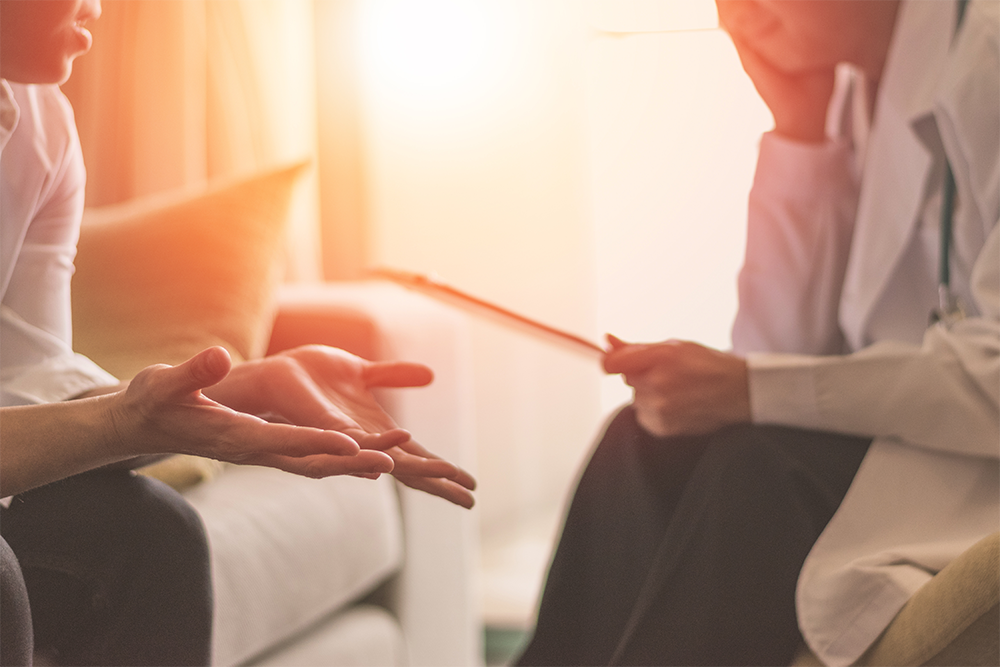 | Service calls | 8-13 Admission patients |
| 3 account. No. 32 1st floor | MAKEEV Yanina Viktorovna | | 8-13 Admission patients | Medical examination 14-20 | 8-13 Admission patients | 8-12/receive no record cont. | Service calls |
| 3 account. No. 36 (42) 1st floor | ARTEMOVA Varvara Olegovna | | | | | | |
| 3 account. №31 (41) 1st floor | SHASHKOVA Olga Sergeevna | | 12-17 Admission patients | 8-13 Admission patients | Service calls | Medical examination 14-20 | 12-17 Admission patients |
| 17 account No.  42 42 2nd floor | KUROVSKAYA Svetlana Andreevna | Clinical examination | Service calls | 12-17 Admission patients | 15-20 Admission patients | 8-12/receive no record cont. |
- Registration, appointment
- Schedule of therapists
- Working hours of narrow specialists
- Ultrasound room
- Emergency Room
- Fluorography room
- Functional Diagnostics Room
- Day hospital
- Pharmacy
- Office of the medical commission
- Physiotherapy room
NewsAll news
Vacancies
MFC for business
Ministry of Health of the Russian Federation
Independent assessment of the quality of services provided by medical organizations - participate
Government of the Kaliningrad Region
Official Internet portal of public services
Medical insurance companies
Territorial body of Roszdravnadzor for the Kaliningrad region
Territorial Compulsory Medical Insurance Fund
Vacancies
Vacancies of the SGS and heads of institutions on the website of the Government of the Kaliningrad Region
Making an appointment with a doctor through the Electronic Registry of the Kaliningrad Region
"Patient Helpline" of the Regional Drug Dispensary
Wages hotline
Antiterrorist Commission of the Kaliningrad Region
Healthy Russia - Project "So cool"
"Take care of your health"
Prevention of HIV / AIDS in Russia
Personal account of citizens on the website of the Government of the Kaliningrad region
Free medical examination of the adult population
Calendar of events
Sociological survey
Call a doctor at home (adult population)
Supervisory and supervisory authorities
Drug supply
Vacancies
bus.
